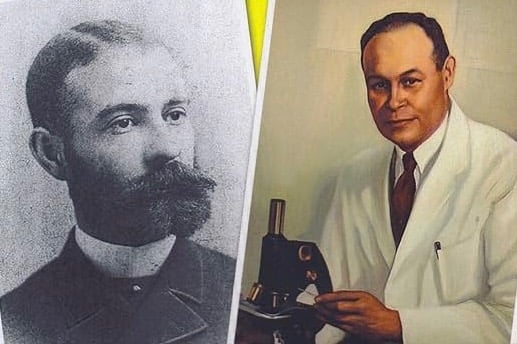Pioneers of Progress: Three Black Americans Who Changed the Medical Industry
UNTOLD, HIDDEN, OMITTED HISTORY
9/4/20252 min read


Pioneers of Progress: Three Black Americans Who Changed the Medical Industry
BY MAURICE WOODSON
From pioneering life-saving surgeries to developing revolutionary medical technology, Black Americans have made monumental contributions to the field of medicine—often in the face of racial prejudice and institutional barriers. Here are three trailblazers whose innovations have saved countless lives and continue to impact modern healthcare.
Dr. Daniel Hale Williams – A Pioneer of Open Heart Surgery
Today, open-heart surgery is a common procedure that saves lives around the world. But few know that the first successful open-heart surgery was performed by a Black physician, Dr. Daniel Hale Williams.
Born in 1856 in Hollidaysburg, Pennsylvania, Williams pursued a medical career at a time when opportunities for Black physicians were scarce. Undeterred, he became a leading surgeon and, in 1891, founded Provident Hospital in Chicago—the first interracial hospital and training facility for Black nurses and doctors in the United States.
In 1893, Dr. Williams made history when he performed the first successful open-heart surgery on a man who had been stabbed in the chest. With no access to modern surgical tools or antibiotics, his meticulous skill and courage set a new standard for what was possible in medicine. His groundbreaking work paved the way for the field of cardiac surgery as we know it today.
Dr. Charles Drew – Father of the Blood Bank
Every time blood is transfused in an emergency room or during surgery, the legacy of Dr. Charles Drew lives on. A surgeon, medical researcher, and inventor, Drew revolutionized the storage and use of blood during the early 20th century.
Born in 1904 in Washington, D.C., Drew excelled in both academics and athletics before pursuing medicine. His research into blood preservation led to the creation of the first large-scale blood banks. During World War II, he was appointed medical director of the first American Red Cross blood bank program, where his methods allowed blood to be stored for longer periods and shipped overseas—saving thousands of soldiers’ lives.
Despite being forced to resign due to racial discrimination, Drew’s innovations laid the foundation for modern blood banking and transfusion techniques, making him a pivotal figure in medical history.
Dr. Patricia Bath – Visionary in Eye Care
For those suffering from cataracts, regaining vision can be life-changing. Thanks to Dr. Patricia Bath, such recovery is not only possible but also widely accessible. An innovative ophthalmologist and laser scientist, Bath broke barriers in both race and gender.
Born in 1942 in Harlem, New York, she became the first Black female doctor to receive a medical patent. In 1986, she invented the Laserphaco Probe, a device that uses laser technology to safely and painlessly remove cataracts. Her invention revolutionized cataract surgery, restoring sight to people around the world—many of whom had been blind for years.
Dr. Bath also co-founded the American Institute for the Prevention of Blindness and was a tireless advocate for equitable access to eye care, especially in underserved communities.
Legacy of Innovation
Dr. Daniel Hale Williams, Dr. Charles Drew, and Dr. Patricia Bath each broke racial barriers and changed the face of medicine with their ingenuity and determination. Their work has saved millions of lives and continues to inspire generations of medical professionals. As we celebrate advancements in healthcare, we must also remember and honor the Black pioneers who helped make them possible.
